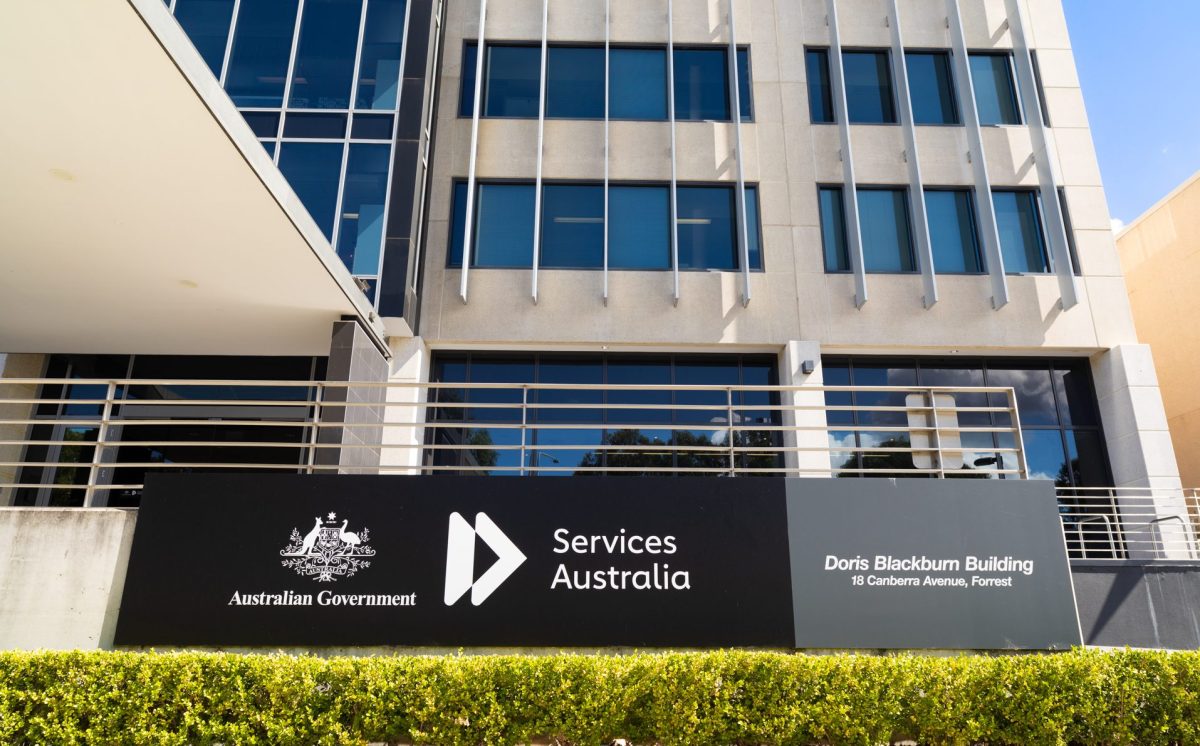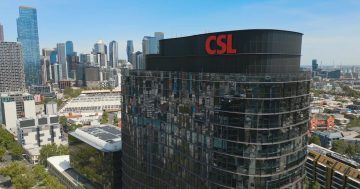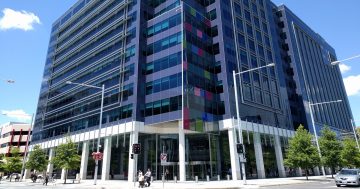
CPSU members will hold stop work industrial action across Services Australia sites. Photo: Michelle Kroll.
Further negotiations over Australian Public Service pay rises won’t reopen until the end of this month, when all parties are hoping to close the deal, but the union representing public servants is escalating its industrial action tomorrow (Tuesday 15 August).
Community and Public Sector Union members in Services Australia will ramp up protests across the agency with a string of one-hour stop work meetings from 4 pm.
CPSU members have finished a two-week stint of industrial action at Services Australia that saw them boycott auxiliary codes in protest over the government’s refusal to meet pay rise demands.
This next round of action is to highlight Services Australia’s approach in agency-specific negotiations, which the union says is in “stark contrast” with other agencies.
The CPSU says Services Australia has so far tabled proposals to cut existing employee rights on performance management, rostering, and call monitoring.
National secretary Melissa Donnelly urged the agency to listen to the concerns of employees and abandon its current approach, because it is the only one proposing cuts to employees’ entitlements.
“While the APSC and other agencies are generally taking a collaborative and positive approach to bargaining, Services Australia management seems to be stuck in the past with their agenda of cuts,” Ms Donnelly said.
“No other agency has proposed cuts in this round of bargaining.
“Services Australia risks missing a valuable opportunity to rebuild and restore workplaces after years of attacks on pay and conditions.
“Attacking employees’ working conditions and rights is not only out of step with every other conversation happening across the APS, but it is out of step with the goals and commitments made by the Albanese Labor Government.
“Our members in Services Australia have already been through so much and are calling on Services Australia to abandon this current approach.”
Services Australia spokesperson Hank Jongen said the strikes should not have an impact on frontline customer service.
“We have prepared for this action, which is at the end of the day. The recent auxiliary code ban had no impact on our services or customer payments, and we don’t expect this will either,” Mr Jongen said.
“We are committed to the bargaining process being as simple as possible for everyone and are taking a collaborative, problem-solving approach to the matters raised through bargaining.
“APS bargaining matters are being led by the Australian Public Service Commission. Services Australia is regularly engaging with the APSC as bargaining progresses.”
Meanwhile, the APSC’s chief negotiator Peter Riordan said he anticipated that discussions on pay, the base salary structure to address pay fragmentation, and parental leave would take place on Tuesday 29 August.
But he said other matters coming back to the table before then, starting with tomorrow, include gender equality; redeployment, retraining and redundancy; employment types; and casual and non-ongoing employment.
Many rescheduled items are close to receiving broad support and a final position, the APSC said, subject to some required minor changes.
These areas include: Integrity and transparency; consultation; personal carers leave; flexible working arrangements; higher duties allowance; family and domestic violence; and workloads.
“The chief negotiator and employee representatives have participated in a consultative approach to negotiations,” an APSC update stated.
“We expect to work through the remaining items with the same approach to offer … an APS-wide package of pay and conditions that will benefit all APS employees.”
But the timeline to complete APS-wide bargaining has blown out a little due to the “need to work through government processes”, with parties now working towards finishing negotiations at the end of the month.
Original Article published by Chris Johnson on Riotact.











